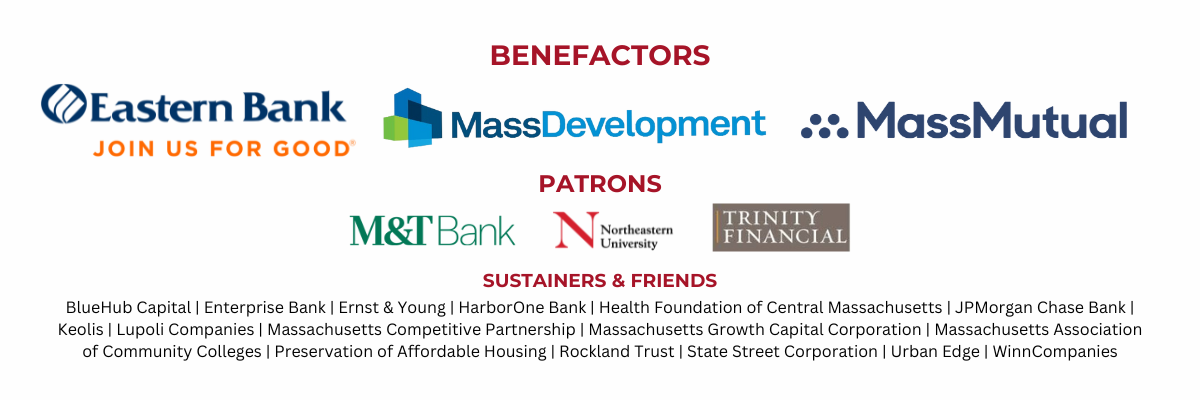New collaboration between the Gateway Cities Innovation Institute and The Engine Accelerator explores emerging industries.
For years, technological innovations have bubbled up from our state’s world-class research universities only to relocate to other regions when the time came to scale up product development and manufacturing.
These entrepreneurs rarely know much about the rest of Massachusetts beyond the Charles River—nor the opportunities to collaborate with municipal leaders to find their ideal next space and build local supply chains.
Some think that could change—including former state senator Ben Downing, who represented Pittsfield and the Berkshires in the legislature, and who now works with The Engine Accelerator, an MIT spin-off organization with a 150,000 sq. ft. flexible working space in Cambridge that currently houses 97 companies.
The Engine supports new technology and entrepreneurs addressing the world’s toughest challenges like climate, health, and advanced systems—earning the nickname “tough tech,” and helping generate real-world applications.
On Thursday, October 10th, MassINC’s Gateway Cities Innovation Institute co-hosted a workshop with The Engine to bring together its ecosystem of inventors, entrepreneurs, and investors with over two dozen municipal economic development officials and several mayors.
Sublime Systems and Holyoke offer one example of what just might be possible. Sublime has pioneered a transformational new process for manufacturing low-carbon cement, an industry that generates 8 percent of today’s greenhouse gas emissions. Thanks in part to stable, competitively priced electricity from Holyoke’s public utility, Sublime won an $87 million federal grant to build a manufacturing plant in the city.
During the recent workshop, Mayor Joshua Garcia and Pat Beaudry of Sublime sat down with Downing for a discussion of the relationships that made the deal possible, along with the local assets that made it attractive. Participants then mingled informally to explore their own needs and what our Gateway Cities have to offer. Both sides found it energizing. The conversation has sparked a desire to continue the dialogue and deepen the relationship in regular meetings and networking events.
Gateway City leaders believe that Sublime’s investment in Holyoke is not a “one-off” and that there are more opportunities like this. Bringing jobs to Gateway Cities in addition to housing will create balanced regional economic development for Massachusetts.
In Other News
Education
- With the overtones of our new school-centered neighborhood development playbook, the Urban Institute charts the success of the US Department of Education’s Promise Neighborhoods program and offers lessons for the future.
- A state panel unveils a set of recommendations aimed at boosting diversity at Massachusetts colleges and universities.
- The Brockton city council and school committee debate a new ordinance that requires competitive bidding for contracts to bus special education students and the publication of names of successful bidders and their fees.
- MassDevelopment issues a $2.5 million tax-exempt bond to help LightHouse Personalized Education for Teens, a nonprofit school serving both private and public school students in grades 6-12, buy the three-building complex in Holyoke that formerly housed Gateway City Arts.
- Scholastic launches a “United States of Readers” program for children from low-income households in a Quincy elementary school.
Housing and Economic Development
- The final economic development bill may emerge before election day.
- As we await the compromise package and the fate of the Downtown Vitality provisions included in the Senate version, there’s yet another reminder of why they are so necessary: the Standard-Times reports on six New Bedford restaurants (including the iconic Freestone’s) that shuttered in 2024.
- Salem uses federal pandemic dollars to launch a guaranteed-income program for 100 residents.
- Beacon Communities is redeveloping Salem Housing Authority’s Leefort Terrace, replacing the existing buildings with a new four-story, 124-unit apartment building. Constructed to “passive house” energy efficiency standards, the new development will be 100 percent affordable with 38 two-bedroom and 24 three-bedroom units.
- Also in Salem, North Shore Community Development Corporation will redevelop two former schools 1.5 miles apart into 61 new affordable rental homes for residents with a range of incomes. With financing from MassHousing, Hawthorne Lofts will include 29 rental units with an artist preference and the Residences at St. James will have 32 rental units restricted to households with at least one-member aged 62 or older.
- The Barr Foundation releases an assessment of the clean energy workforce in New England.
- Boston Indicators looks at legalizing mid-rise single-stair buildings in Massachusetts.
- Brookings and Economic Architecture catalog structural changes to address systematic undervaluation of homes in communities of color.
Transportation
- Thomas Glynn steps aside as chair of the MBTA board, making way for Thomas McGee, the former mayor of Lynn, to take the reins.
- Lynn is illuminating five railroad bridge underpasses.
- It may cost $5 million to repair a pedestrian bridge over rail tracks close to University Park in Worcester, which has been closed since a December inspection.
The Gateway Cities Journal is made possible with the support of our sponsors.

Get the latest updates on policy issues impacting Gateways Cities delivered right to your inbox.
The Gateway Cities Innovation Institute strengthens connections across communities and helps Gateway City leaders advance a shared policy agenda.
